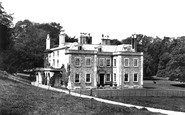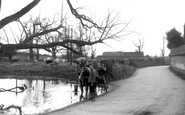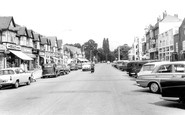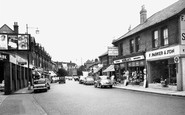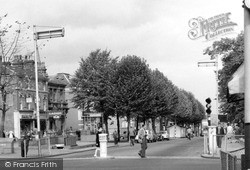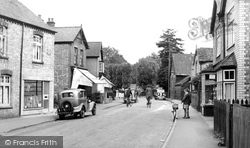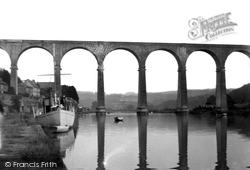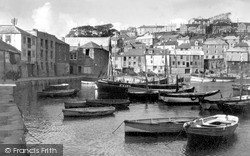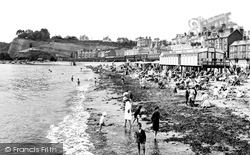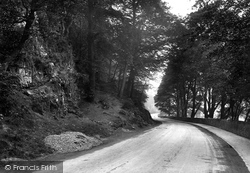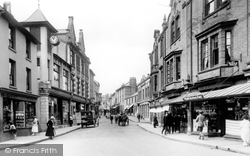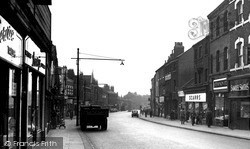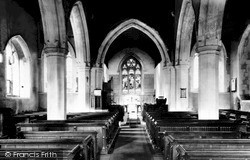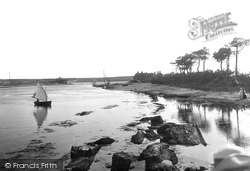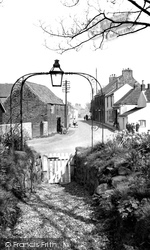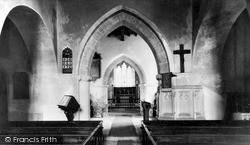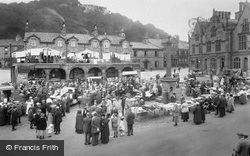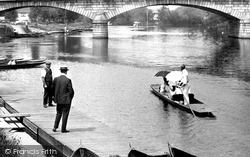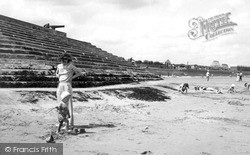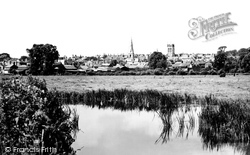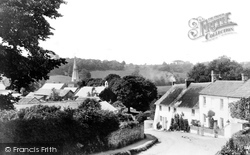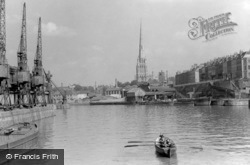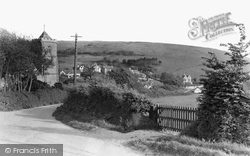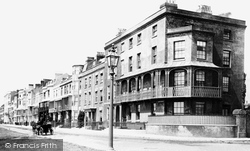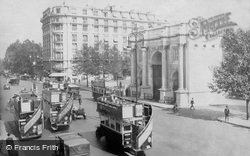Places
Sorry, no places were found that related to your search.
Photos
5 photos found. Showing results 681 to 5.
Maps
83 maps found.
Books
Sorry, no books were found that related to your search.
Memories
1,127 memories found. Showing results 341 to 350.
Growing Up In Tottenham
I spent the first eleven years of my life in Tottenham. We lived above the PDSA dispensary in Seven Sisters Road. My father worked for the PDSA as a vet, and I remember very clearly the queues of people waiting to have their ...Read more
A memory of Tottenham in 1950 by
Growing Up In Wombwell
My family and I, the Oughtons, lived at 53, Wombwell Main Row, a community for miners and their families. My dad worked at Darfield Main pit all of his life up until early retirement in the early 1980s. I have kept in touch ...Read more
A memory of Wombwell in 1967 by
Growing Up In World War Ii
I was born to Jewish parents whom had a ladies clothes shop in Kensington Gardens (The Lanes) my Father died in 1941, My Mother now a very young widow decided she wanted us all to live above the shop because of bombs ...Read more
A memory of Brighton in 1930 by
Growing Up As A Boy In Stubbins
I was born at 12 Ashwood Avenue on Peel Brow estate Ramsbottom in 1952. My father after being demobbed from the eighth army in 1945 had always and continued to work in cotton mills. In 1960 our ...Read more
A memory of Stubbins by
Growing Up At Coombe Place
My family and I moved to a bungalow at Coombe Place in 1960. My father, Walter Motley, took up the post of farm manager on this 100 acre dairy farm with a herd of Jersey cattle. Coombe Place is set on the side of the South ...Read more
A memory of Offham in 1960 by
Growing Up In Foxton Cambridgeshire
How a Family that came to south Cambridgeshire Clifford John Masters, My Story I was born in 4 Chaucer Cottages Foxton on the 9th February 1940 The houses backed onto the “park” all ...Read more
A memory of Barrington by
Growing Up In Handley
My family moved to Handley in 1947 and I spent the rest of my childhood there. Our family name is Harris and my parents were Drs Paul and Zoe , they had five children. We lived off the road to Deanland. I never could ...Read more
A memory of Sixpenny Handley in 1950 by
Growing Up In Holbeach St Marks (The Marsh)
Although I was actually born in Holbeach Bank, and spent the first 3 1/2 years of my life in Holbeach St Matthews, I spent my childhood in Holbeach St Marks. My mother and father Ray and Greta Gray, ...Read more
A memory of Holbeach St Marks in 1955 by
Growing Up In Potters Bar
My name is Arhur Brown and I moved to Potters Bar from Tottenham when i was about eight years old along with Mum Doris Dad Arthur and sisters Sylvia and Jeanette and two years later my brother Stephen arrived on the scene.I ...Read more
A memory of Potters Bar by
Growing Up In Purley
When I lived in Purley, there weren't many stores. I can remember when Sainsbury's opened across from Purley Fountain. There was a toy shop in the High Street called Morgan's. I stole a whistle from there when I was not very ...Read more
A memory of Purley in 1950 by
Captions
1,233 captions found. Showing results 817 to 840.
They look even more unnatural these days, as they are severely pollarded in the French style, but they would be much missed if they were removed.
The cyclists here obviously felt sufficiently safe not to worry too much about hugging the kerb and avoiding brushes with the traffic.
The lofty 12-arched viaduct spanning the Tamar took four years to build. Since opening in 1908, it has carried the branch railway from Plymouth to Gunnislake, and formerly Callington.
Along with places like Looe, Polperro and St Ives, Mevagissey has long been a fishing port much loved by artists and visitors alike.
Like Teignmouth and Lyme Regis, Dawlish was much-loved by fashionable society during the 19th century.
The road has not been improved very much today.
Notice the horse-drawn cart and the absence of much other traffic.
Along the line is the ninety-nine-arch bridge containing 800 million bricks.
Although the register dates from around 1560, the beautiful interior of the church owes much to restoration carried out in the mid-1800s.
Fashion decreed that much of Georgian society should follow the monarch's example, creating a minor bathing resort on the edge of what had been a lonely estuary.
The road here winds down towards the sea, past the church of All Saints, with its decorative wrought-iron arch. Behind the church is an attached farm and tithe barn.
The north aisle wall was moved when the aisle was widened in 1846, but the Norman arcades remain; they have three bays, with unmoulded arches of simple imposts with slight chamfering.
These date from the 17th century, and comprised several shops in an arched arcade with living accommodation above.
The three-arched structure was designed by George Rennie and opened by King William IV in the 1830s.
The cannon would not have been much use in 1940. Mablethorpe is to the right and north.
Looking along the Staffordshire & Worcestershire Canal towards the T-junction with the Trent & Mersey, an attractive bridge carries the latter's towpath across the former on a slender brick arch with
These date from the 17th century, and comprised several shops in an arched arcade with living accommodation above.
This fine view of Dorchester from the meadows alongside the River Frome shows the county town of Dorset much as Thomas Hardy would have known it when, as an apprentice architect, he would walk there
The church, St John the Baptist is essentially 14th century, although much of the interior has been re-modelled.
After 50 years, very much as one would expect, with the exception that one of the pine trees has been removed.
This huge parish church, the size of a cathedral, owes much to the generosity of Bristol's merchants, such as William Canynge (who died in 1396) and his grandson William Canynge the younger (1394?
Much of the surrounding countryside has been used for military training since World War Two.
Much later it became a fashionable seaside resort, its seafront and neighbouring streets lined with handsome Georgian and Victorian villas.
In 1908 Marble Arch lost the neighbouring neighbourhood building, and the ground was cleared as far as Park Lane to the left. It was on an island site, but this had not yet become a roundabout.
Places (0)
Photos (5)
Memories (1127)
Books (0)
Maps (83)



